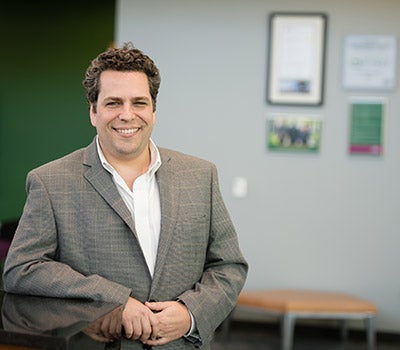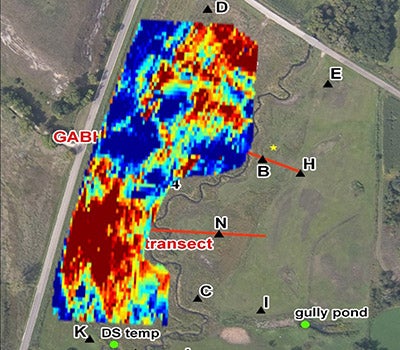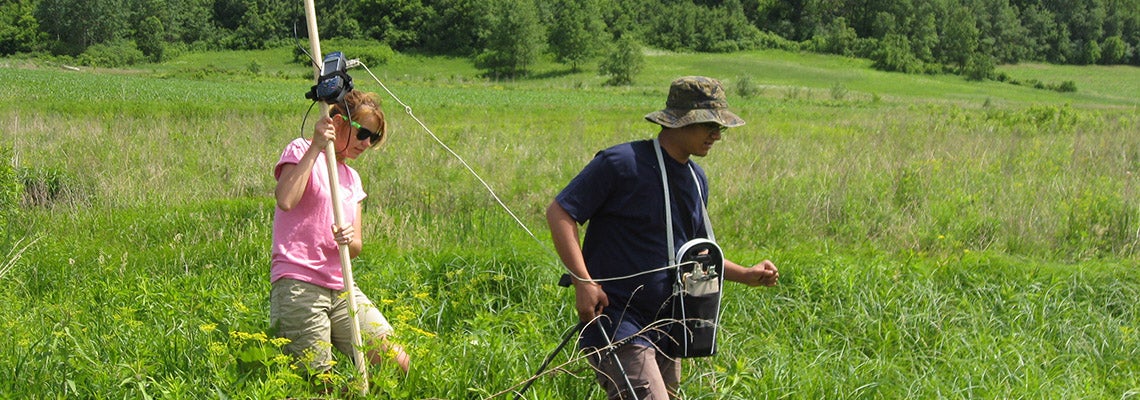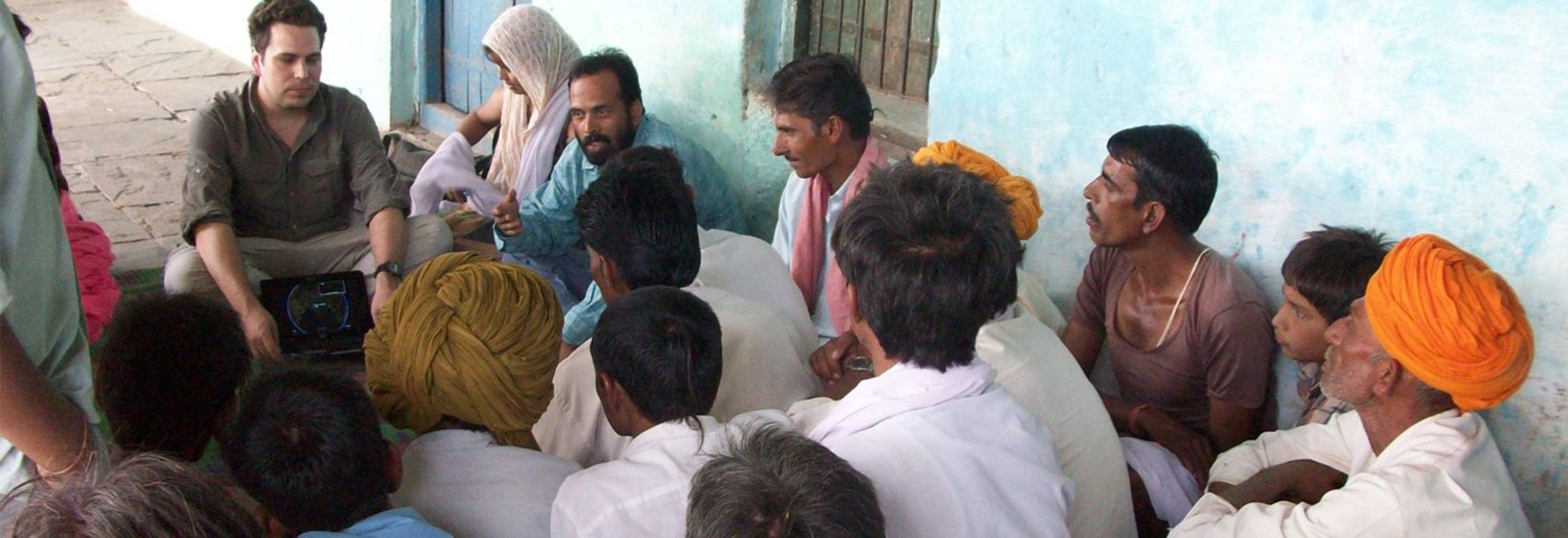TACKLING WATER WOES
Harriot College hires director of Water Resources Center
East Carolina University’s commitment to addressing the challenges faced by rural communities in receiving fresh water is one issue the director of the Water Resources Center plans to address. Dr. Stephen Moysey has been hired as a professor of geological sciences and director and lead scientist for the center.

Dr. Stephen Moysey has been hired as a professor of geological sciences and director and lead scientist for ECU’s Water Resources Center, housed in the Thomas Harriot College of Arts and Sciences.
The center, which is housed in the Thomas Harriot College of Arts and Sciences, is a cross-college initiative that includes scientists and faculty from Harriot College, the College of Engineering and Technology, and the College of Health and Human Performance. Members of the center include Randall Etheridge, assistant professor of engineering; Charles Humphrey, associate professor of health education and promotion; associate professors of geological sciences Alex Manda and Siddhartha Mitra; and Michael O’Driscoll, associate professor of coastal studies.
“Eastern North Carolina faces a wide range of water-related challenges and opportunities for a sustainable and resilient future,” Moysey said. “The activities of the center will pursue fundamental science that has real-world consequences. By empowering rural stakeholders through inclusive research and education initiatives, we will strive to improve the role of science-based decision making across these communities.”
Moysey comes to ECU from Clemson University, where he most recently served as an associate professor of environmental engineering and earth sciences; associate professor of engineering and science education; and co-director of the Clemson Center for Geospactial Technologies, the Center of Excellence for Next Generation Computing and Creativity, and the graduate program in Resilient Infrastructure and Environmental Systems.
“I am honored to lead ECU’s efforts in addressing water issues in North Carolina and around the world,” Moysey said. “The university has shown a substantial interest in advancing this area of transdisciplinary research, and I have been impressed by the large and diverse community of faculty that are eager to collaborate.”
Dr. Steve Culver, chair of the Department of Geological Sciences, commented, “Stephen Moysey is a great addition to ECU’s interdisciplinary team of researchers that deals with water resource issues. As director of the Water Resources Center within Harriot College, he will lead and help define the future direction of research, education and outreach in all things related to water.”
Moysey’s short-term goals include identifying strengths and interests among the ECU faculty, centers, and university research clusters and to align these with funded research opportunities within the ECU Water Resources Center.

Results of Moysey’s data collection by students are displayed in this map. Here, the red zones show regions where the greatest change in the electrical conductivity of the soil occurred between June and July. These hot spots illustrate a critical dependency between geologic variability and plant demands for water that control soil moisture storage. This kind of information is needed to help predict how ecosystems and climate will respond to future natural and human-induced environmental changes.
To support this effort, he will lead recruitment efforts for three new faculty hires who will play key roles in building focus areas for the center – one each in chemistry, engineering, and geography, planning and environment.
“I am also working to identify stakeholders interested in partnering on data-driven initiatives to address resource issues in different community and industry contexts. Such partnerships are particularly important in the eastern portion of the state where there is a sparsity of water data, which ultimately increases uncertainty and risk when stakeholders and the public need to be informed to make decisions about regional growth,” Moysey said.
In this effort, Moysey will look for opportunities to pilot community-based initiatives that can support water education through citizen science and science communication activities.
For example, Moysey is exploring the potential for students working in North Carolina to partner with sister cities in Puerto Rico in an effort to compare, contrast and communicate how physiographic and socioeconomic settings contribute to risk and resilience in their communities.
Looking into the future, Moysey has a number of goals for the center and its research cluster.
“Given the existing emphasis on water-related research at ECU, the cluster is poised to become an important focal point for integrated research and education activities for the campus,” Moysey said. “As the activities of the cluster grow over time, we will need to increase the resources available to enable faculty to pursue large-scale, multi-investigator grants. For example, providing research personnel and facilities across departments to support faculty and students in the collection, analysis and curation of data is critical to increasing our capacity for high-level research at ECU.
“Similarly, this research will require the creation of new interdisciplinary graduate degrees along with programs to recruit and retain the best students to fill them. If we are able to provide these types of infrastructure supports, and we are able to focus the efforts of our students and faculty participating in the cluster, ECU will have a strong potential of emerging as a national leader for water research.”
In addition to his role as director of the center, Moysey will teach a hydrogeology and environment course (GEOL3500) beginning this spring. He also intends to increase opportunities for student engagement though research, outreach and study abroad opportunities.
“I am excited about exploring opportunities to engage ECU’s undergraduate students in efforts to understand and tackle the challenges faced in their home communities,” Moysey said. “My passion for water is rooted in experiences that I had as an undergraduate student, so I appreciate the importance of building the opportunities that will inspire and enable our students to become future leaders in the stewardship of our water resources.”
For more information about the center, visit https://ecuwater.org.

Two students from Moysey’s research group collect data using a non-contact electromagnetic induction instrument, which can provide insights regarding water availability, salt content and other subsurface properties.
